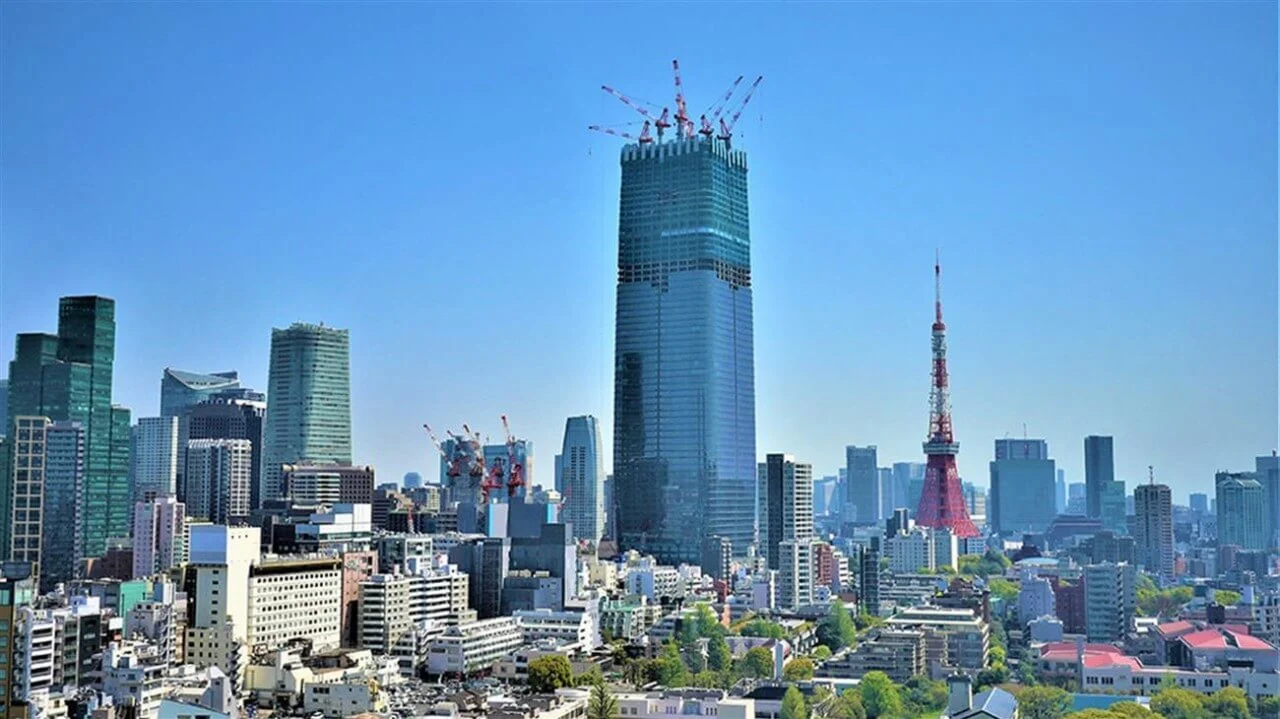As we navigate through 2025, Japan’s real estate market is experiencing a remarkable transformation that’s capturing the attention of global investors.
With property prices reaching their highest levels since 1991 and the market valued at USD 436.0 billion in 2024, with projections to grow to USD 557.0 billion by 2033, the Land of the Rising Sun presents unprecedented opportunities for savvy investors.
A Market Defying Expectations
Despite facing demographic challenges, Japan’s real estate sector continues to demonstrate remarkable resilience. In January 2025, the residential property price index in the Tokyo Metropolitan Area rose by 8.14% compared to the same period last year, signaling sustained growth momentum that shows no signs of slowing down.
What’s particularly intriguing is how foreign investment in Japan’s real estate market is over $10 billion, with a 45% increase in the first half of the year due to the weakened yen. This surge in international interest isn’t just a temporary spike—it’s reshaping the entire landscape of Japanese property investment.
Tokyo: The Crown Jewel of Asian Real Estate
Tokyo remains the epicenter of Japan’s property boom.
According to Tokyo Portfolio, Property prices in Tokyo are expected to increase by 5-6% annually in 2025, with luxury properties leading the charge. The capital’s appeal isn’t just about numbers—it’s about fundamentals.
When searching for the perfect investment location, understanding the best neighborhoods in Tokyo is essential for making informed decisions. Areas like Minato, Shibuya, and Shinjuku continue to attract premium buyers, offering both stable rental yields and strong capital appreciation potential.
Tokyo’s high-end residential market is effectively sold out in many prime projects, keeping prices elevated. This scarcity, combined with extremely low vacancy rates of typically only 4–5% in desirable wards, creates a perfect storm for continued price appreciation.
The Foreign Investment Revolution
One of the most significant trends reshaping Japan’s real estate landscape is the unprecedented influx of foreign capital. With no restrictions or extra taxes on foreign ownership, the country has become one of the easiest places for non-residents to buy property. This open-door policy has attracted investors from China, the United States, Singapore, and beyond.
Foreign real estate investment (2024): JPY 2.3 trillion ($15.7 billion USD), marking a 12% YoY increase, with North American and European funds accounting for 68% of foreign inflows. The weak yen has been a game-changer, allowing international buyers to acquire Japanese properties at effectively discounted prices.
Beyond Tokyo: Regional Markets on the Rise
While Tokyo dominates headlines, regional cities are experiencing their own renaissance:
Osaka: New condominiums on the market rose strongly by 15% year-over-year to 16,621 units in 2024, demonstrating robust demand in Japan’s second-largest metropolitan area.
Fukuoka: Emerging as one of Japan’s fastest-growing cities, attracting young professionals and offering higher rental yields compared to Tokyo.
Nagoya: A manufacturing hub with stable rental income potential and lower entry prices.
Government Initiatives Fueling Growth
The Japanese government isn’t sitting idle. The Japanese government has introduced policies encouraging the demolition of deteriorating buildings and providing incentives to property owners to renovate or sell their unoccupied properties. These “akiya” (abandoned home) initiatives are creating unique opportunities for investors willing to renovate and revitalize properties.
Additionally, In April 2023, the Council for Promotion of Foreign Direct Investment in Japan announced an “Action Plan for Attracting Human and Financial Resources from Overseas”, signaling the government’s commitment to maintaining Japan’s appeal to international investors.
The Technology and Sustainability Edge
Modern Japanese real estate development is increasingly focused on innovation. Tenants prioritizing high-quality buildings with sustainability certifications and smart technology integration are driving developers to create cutting-edge properties that meet international standards.
From smart home features in residential buildings to energy-efficient office spaces, Japan’s real estate market is positioning itself at the forefront of sustainable urban development.
Investment Opportunities Across Asset Classes
Residential Properties
Apartments in Tokyo, especially in areas like Shinjuku, Shibuya, and Minato, provide stable rental yields and high occupancy rates. While central Tokyo offers yields of 3-4%, regional cities can deliver 5-8% returns.
Commercial Real Estate
Tokyo’s Grade A office market in the five central wards showed strong signs of recovery in Q3 2024, with demand outpacing new supply. The office sector remains attractive for institutional investors seeking stable, long-term returns.
Logistics and Industrial
Industrial and logistics properties see 40% of all foreign real estate investment due to strong e-commerce demand. Major players like Blackstone and GIC have invested billions in this sector.
Hospitality
With tourism rebounding strongly, hotel investments are experiencing renewed interest. For hotels, three out of four respondents expect prices to rise, with 27% expecting rises of more than 10%.
What to Expect in 2025 and Beyond
The outlook for Japan’s real estate market remains overwhelmingly positive. With both domestic and foreign demand as drivers, the Japanese economy is expected to continue its gradual recovery in 2025.
Key factors supporting continued growth include:
- Sustained foreign investment appetite
- Limited new supply in prime locations
- Government support for market development
- Rising domestic wages supporting rental demand
- Tourism recovery boosting commercial and hospitality sectors
However, investors should monitor potential headwinds, including:
- Gradual interest rate increases by the Bank of Japan
- Possible future regulations on foreign ownership
- Global economic uncertainties
Making Your Move
For investors considering entering Japan’s real estate market, 2025 presents a unique window of opportunity. The combination of favorable exchange rates, supportive government policies, and strong market fundamentals creates ideal conditions for both short-term gains and long-term wealth building.
Whether you’re interested in Tokyo’s premium residential market, regional commercial properties, or emerging sectors like logistics and data centers, Japan offers diverse opportunities to match various investment strategies and risk profiles.
The key to success lies in understanding local market dynamics, choosing the right locations, and partnering with experienced professionals who can navigate Japan’s unique real estate landscape. As the market continues to evolve, those who act decisively while maintaining a strategic, informed approach will be best positioned to capitalize on Japan’s real estate golden era.

























